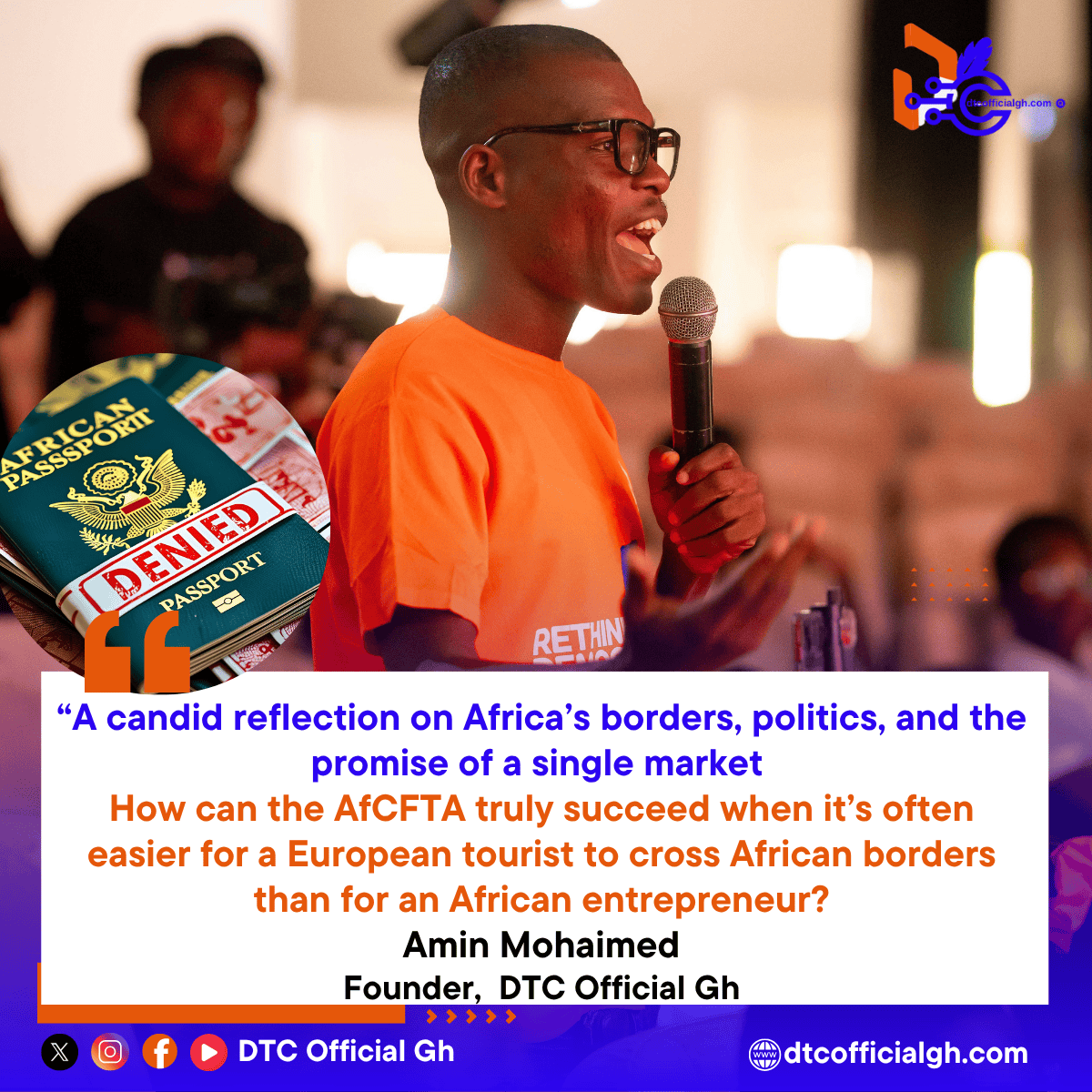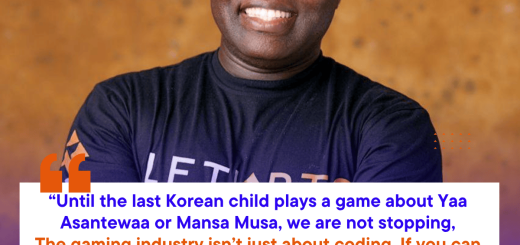Free Trade, But Where’s the Free Movement?

A candid reflection on Africa’s borders, politics, and the promise of a single market
The Question That Keeps Me Up at Night
How can the African Continental Free Trade Area (AfCFTA) truly succeed when it’s often easier for a European tourist to cross African borders than for an African entrepreneur? That’s the paradox I unpack in my latest YouTube video, recorded in a raw moment of frustration and hope. (👉 Watch it here).
AfCFTA Is Rolling, People Are Not
• 48 countries have now ratified AfCFTA, laying the legal groundwork for a $3.4 trillion single market.
Even Africa’s Richest Man Gets Stuck
• Yet only four, Rwanda, Niger, Mali and São Tomé & Príncipe, have ratified the AU’s Free Movement Protocol. We’re miles from the 15 ratifications needed for it to enter into force.
READ ALSO: Youth in AI Launches Groundbreaking AI Lab at Google Research Accra
That gap turns “free” trade into an expensive, time-consuming maze of visa forms, embassy queues, and dashed business deals.

At the 2024 Africa CEO Forum, Aliko Dangote revealed he still needs 35 separate visas to visit his own customers across the continent. If the continent’s wealthiest industrialist can’t breeze through airports, imagine the friction for a young Ghanaian coder or a Kenyan agri-startup founder.
For more insights and inspiring stories , kindly follow us on Twitter and WhatsApp for more.
Islands of Progress
A few bright spots prove it’s possible:
Country/Deal What Changed –Why It Matters
Ghana Pledged visa-free entry for all Africans by Dec 2024 – Sets a precedent for West Africa’s busiest hub
Ghana–South Africa 90-day reciprocal visa waiver (2023) – Shows big economies can open doors without chaos
Rwanda Visa-free for every African passport – Demonstrates that bold policy attracts investment
Imagine the economic surge if these policies went continental.
Borders: A Colonial Hangover We Keep Feeding
Kwame Nkrumah warned that Ghana’s independence was “meaningless unless it is linked with the total liberation of Africa.” Today, those “lines on a map” still fracture families in Togo, Ghana, Benin, and beyond. We blame brain drain, yet we erect policies that repel home-grown talent and block regional hiring.
Where Political Will Meets Youth Resolve
Corruption thrives when elections turn into cash-and-carry contests. Meanwhile, young Africans; techies, creatives, engineers: are told they lack “experience” even as they build billion-dollar ideas overseas. If leaders won’t model integrity, the next generation must redefine it.
READ ALSO: Unlocking Africa’s Trade and Fintech Potential: A Conversation with Nick Murphy
A Road Map We Can’t Keep Ignoring
1. Ratify the Free Movement Protocol, now. AfCFTA without people is paperwork.
2. Standardize e-visas and mutual visa waivers across RECs. Pilot successes already exist; scale them.
3. Reward regional trade champions. Offer tax incentives or fast-track permits to firms that hire and sell across borders.
4. Teach Pan-African history in schools. You protect what you value; you value what you understand.

Join the Conversation
My full, unfiltered take, including thoughts on neo-colonialism, youth disillusionment, and the legacies of Nkrumah, Sankara, and Lumumba, is on DTC OfficialGh.
For more insights and inspiring stories , kindly follow us on Twitter and WhatsApp for more.
👉 Watch the video, leave a comment, and share it if this is your worry too.
READ ALSO: Has Democracy Failed Africa? A Candid Conversation with Mrs. Ngonadi




3 Responses
[…] READ ALSO: Free Trade, But Where’s the Free Movement? […]
[…] MUST READ: Free Trade, But Where’s the Free Movement? […]
[…] Read Also: Free Trade, But Where’s the Free Movement? […]